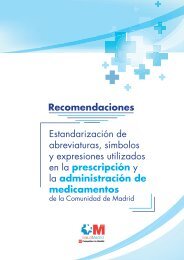lKd7nD
lKd7nD
lKd7nD
Create successful ePaper yourself
Turn your PDF publications into a flip-book with our unique Google optimized e-Paper software.
A More Complex Occasion<br />
Pierre Joris<br />
In high school, in<br />
Luxembourg where I<br />
lived until I was 18, I<br />
heard a reading of Paul<br />
Celan’s most famous<br />
poem, “Todesfuge /<br />
Death Fugue.” It may<br />
have been the one<br />
absolute epiphany I<br />
experienced. It was not<br />
the gorgeousness of<br />
the verbal music and of the poem’s elegant fugal construction,<br />
nor was it the obvious horror of the content, the exterminated<br />
bodies of the Jews going up in smoke to be buried in the air<br />
that created this effect. No, it was the abyss opened by the<br />
seemingly impossible and discrepant combination of those two<br />
contradictory elements into which I fell—making me realize<br />
that there was a use of language different from all other ones, be<br />
that daily speech or novelistic storytelling. And that other use of<br />
language was poetry.<br />
I never recovered from this discovery and some five years<br />
later—years during which I had written my juvenile poems<br />
and stories in French and in German—when I decided to write<br />
poetry in English and make that my life’s work, I also realized<br />
that translation would have to be an essential part of the work.<br />
Not only because I foolishly thought at the time that literary<br />
translation could be a way of making a living as a poet, but<br />
also because I saw translation as both a duty and a core poetic<br />
learning experience. A duty, because I had the languages and<br />
therefore felt it to be my ethical responsibility to help ferry things<br />
from one language to an other so that the language-challenged<br />
could get some sense of what was being thought and written and<br />
felt elsewhere in the world. A core learning experience, because I<br />
never believed one could learn to write poetry in creative writing<br />
classes, nor do I believe in the old romantic notions of genius or<br />
muse or inspiration, but I do think—no, I know—that reading is<br />
essential to writing.<br />
The closest reading—total immersion, in fact—into the<br />
strongest and most mysterious and challenging work you can<br />
encounter (and the very act of going to encounter it), is finally<br />
66<br />
National Endowment for the Arts



